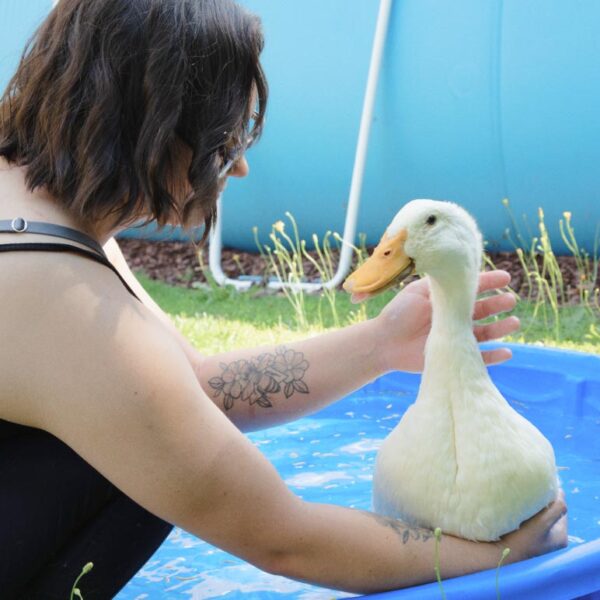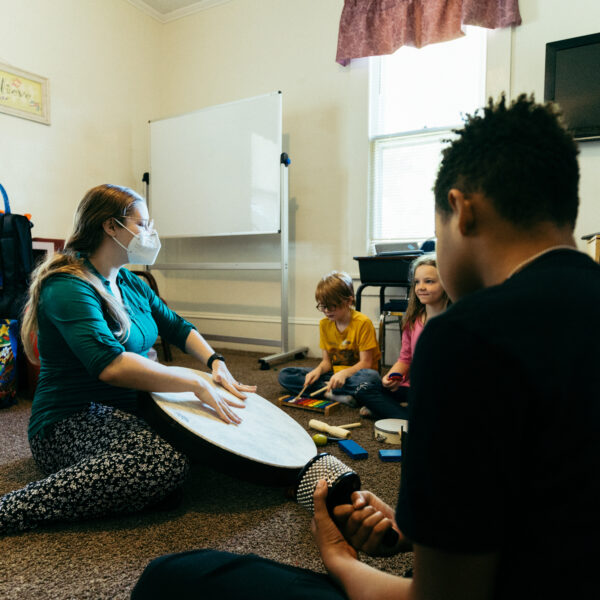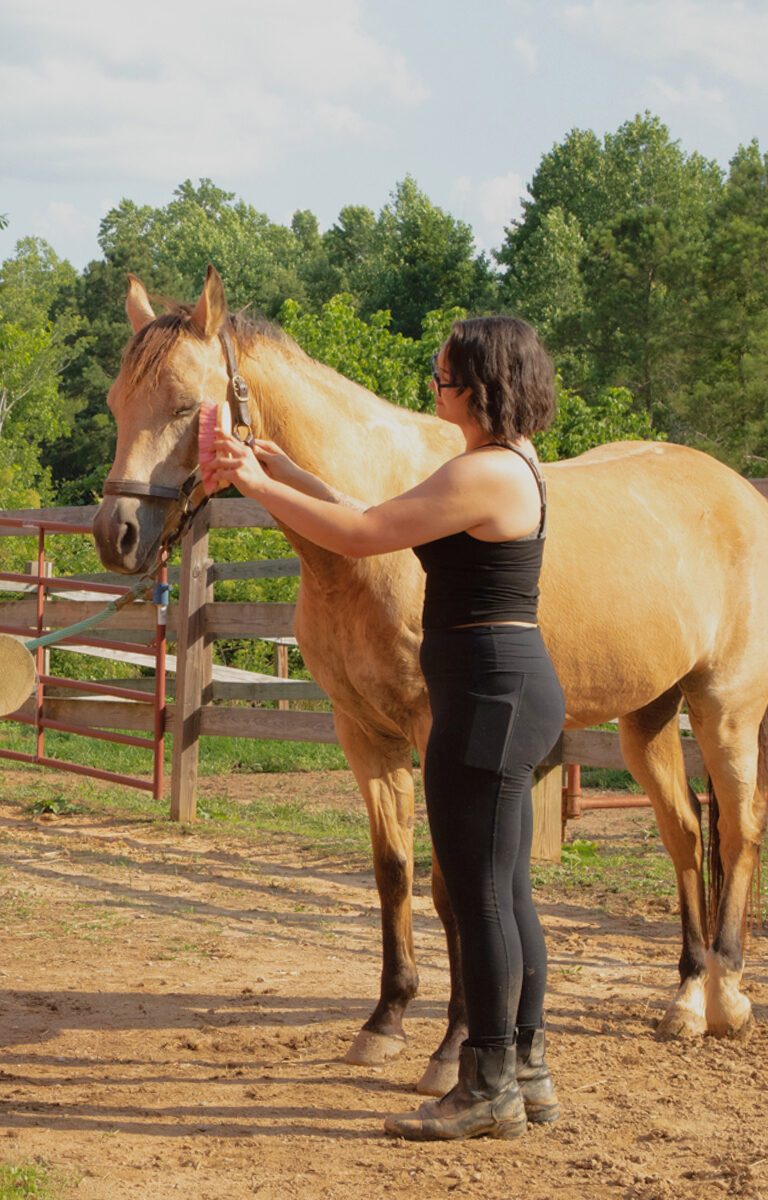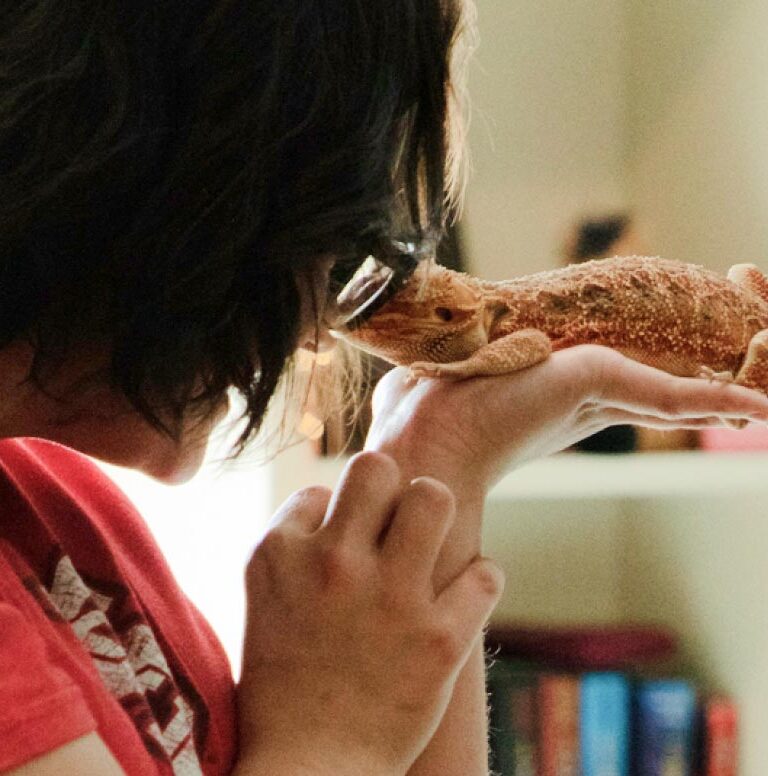Resource Author
Mosaic Senior Advisor
Share
This Q&A was created based on insights shared by Natural Creativity Co-Directors Chris Steinmeier and Krystal Dillard

Four Ways To Dip Your Toes into Independent Meaningful Learning
The more curious you become, the more you’re able to learn about what truly brings your child joy. These tips are just a starting point.
Four Ways To Dip Your Toes into Independent Meaningful LearningHow is self-directed education different from conventional or standardized school?
In contrast with standardized school, self-directed education is based on the belief that learning happens naturally, anywhere at any time. Instead of adhering to arbitrary expectations of when we “should” hit certain milestones or what’s “worth” learning, self-directed education acknowledges the unique personality, values, and interests of each young person, trusting them to learn the skills they need to thrive in the world. Rather than enforcing obedience above all else, it values their perspective, contributing to the development of confidence, independence, and more rewarding relationships with adults.
In contrast with standardized school, self-directed education is based on the belief that learning happens naturally, anywhere at any time.”
Is this the same as homeschooling?
Self-directed education is classified as a form of homeschooling, but it is not schooling at home.
Where does unschooling happen? Do I need to stop working for this to work?
Unschooling can “happen” anywhere—at home, on the road, at the beach, at the corner shop. When we redefine learning as a natural human trait, it becomes something we don’t worry about enforcing, and the opportunities to learn and develop skills become endless. Given this unstructured nature, unschooling doesn’t typically require constant supervision past a certain age of development. There are also learning centers around the world dedicated to providing space and resources for young people to pursue their interests, facilitated by knowledgeable adults.
Do young people who are unschooled learn basic academic skills?
Most people want to be able to write notes, enjoy books and short stories, and calculate percentages. Reading, writing, and math are a part of our daily lives; therefore they invariably come up as necessary skills for young people. When we’re motivated by exploring areas of our own interest, learning the necessary skills to pursue these topics becomes not only enjoyable, but also “sticky” and long-lasting. Unschoolers get excited by making these connections because basic academic skills make it easier to pursue their interests.
For example, an interest in cooking provides the opportunity to read recipes, calculate fractions, learn about other cultures, and understand the science of the ingredients. A passion for video games provides the opportunity to research tips and hidden maps, calculate scores and progress, and develop an understanding of probability.
When we’re motivated by exploring areas of our own interest, learning the necessary skills to pursue these topics becomes not only enjoyable, but also “sticky” and long-lasting.”

A Different Take on the Core Four
Shift from academic “Core Four” to a developmental focus—cognitive, physical, emotional, and social growth—to support your child’s natural rhythms and whole-person learning in unschooling.
Read The Article HereWhat are the benefits of self-directed education?
Unschoolers grow into independent, confident adults. They haven’t had someone else’s values enforced onto them, and as a result, people who unschool often show an assertiveness and ability to think freely that even some adults never develop. Self-directed education also encourages intergenerational relationships based on trust, rather than dominion and discipline, empowering young people and adults alike and fostering more meaningful connections. It taps into our natural creativity, allowing young people the freedom and power to explore their own interests. And, in many unschooling communities, young people socialize with a peer group comprising people from different backgrounds and age ranges, benefitting from a diverse peer group they may not experience in standardized school.
How do you measure success in self-directed education?
There are as many definitions of “success” as there are people on this planet—much like learning, success is extremely individual. We are driven to succeed much in the way we are driven to learn: the motivation to accomplish our goals leads to the development of deeper understanding and engagement, more so than an external, standardized definition of success ever could. Self-directed education encourages the development of skills that make us agile and responsive learners, skills that help us on both a personal and professional level.
How do we know that self-directed education works?
Perhaps the best evidence for the effectiveness of self-directed education comes from follow-up studies of grown Unschoolers and graduates of schools designed for self-directed education (some of which are reviewed here). Such work reveals that those who wish to pursue formal higher education have no particular difficulty gaining admission to colleges and universities and perform well when there; that collectively they have been successful in the full range of careers that are valued in our society; that many have pursued careers that are direct extensions of passionate interests they developed as children in play; that, by their own reports, they are more self-motivated and responsible in adulthood, because of their self-directed education, than they otherwise would be; and that they are happy with their lives and have few if any regrets about the unusual educational path they followed growing up.
About the author
This Q&A was created based on insights shared by Natural Creativity Co-Directors Chris Steinmeier and Krystal Dillard
Have questions or feedback?
Reach out at hello@weareborntolearn.org or click the link below to join our Facebook community to talk more.

Daniel T. Moeller, M.Ed.
Having worked in and around early childhood education for the last 15 years, Dan stumbled upon the concept of unschooling. He found the practice and theory of unschooling to agree with all of the current research on early education he encountered in his master’s program while also disagreeing with a lot of what he witnessed in schools all over. With the full backing of his son and wife, Dan started unschooling his son. Early on, Dan’s son Kai came up with the idea to start a podcast. They made the idea a reality and “Unschooling with Kai” was born. Each episode centers on one of Kai’s interests (e.g. wild cats, Delta Force, tardigrades, etc.). Together, Dan and Kai research each topic and present the fascinating things they learn. “Unschooling with Kai” is now in season six and shows no sign of slowing. While not wrapped up in the intellectual world of unschooling, Dan enjoys reading, playing drums, skateboarding, all kinds of movement, enjoying nature, and spending time with his family.

















